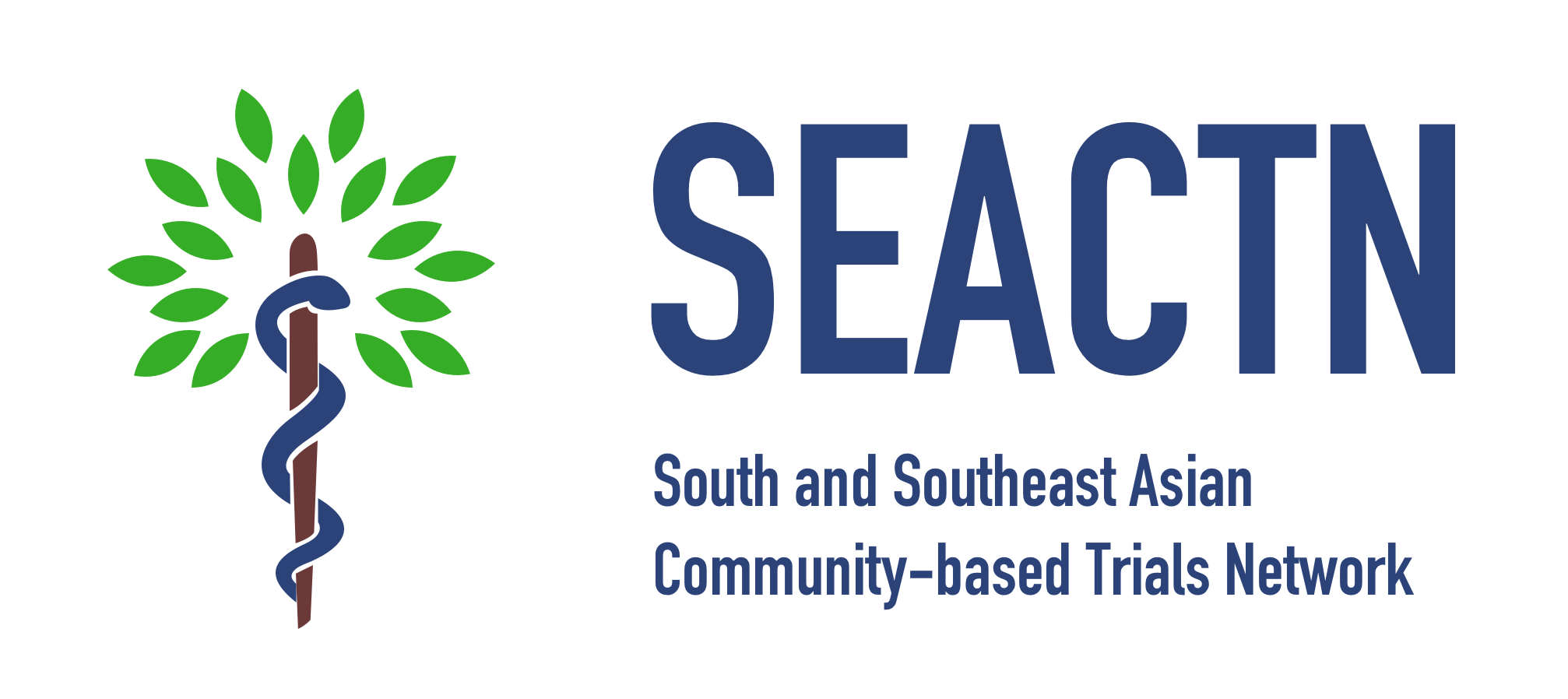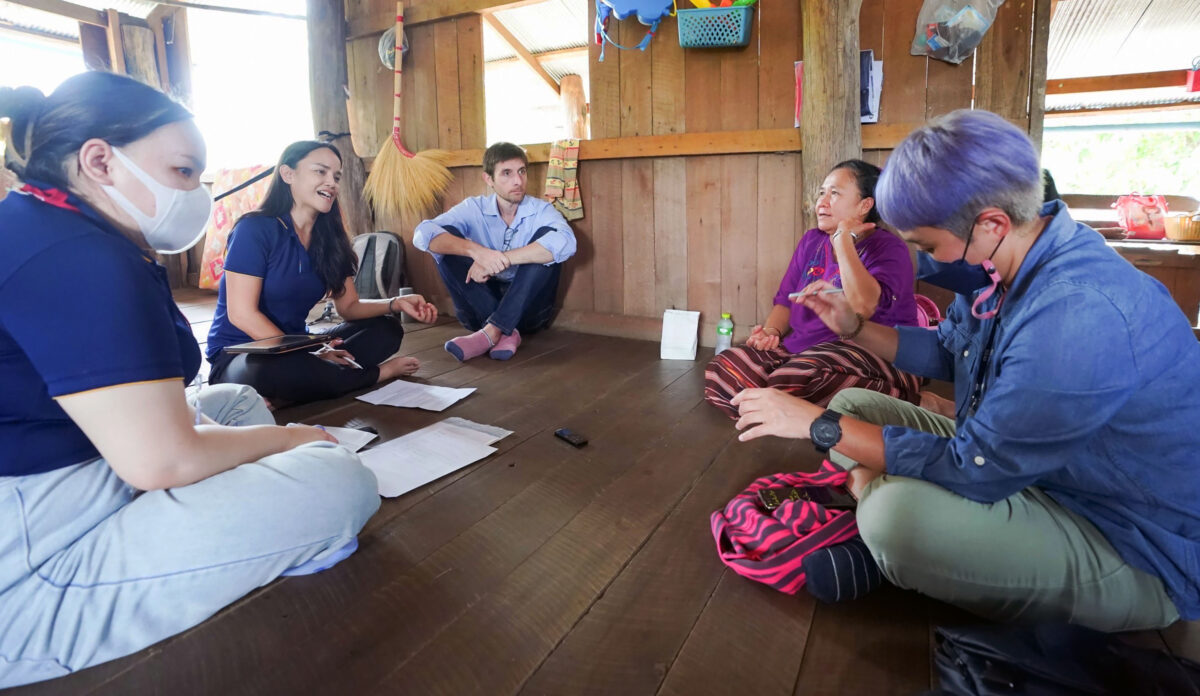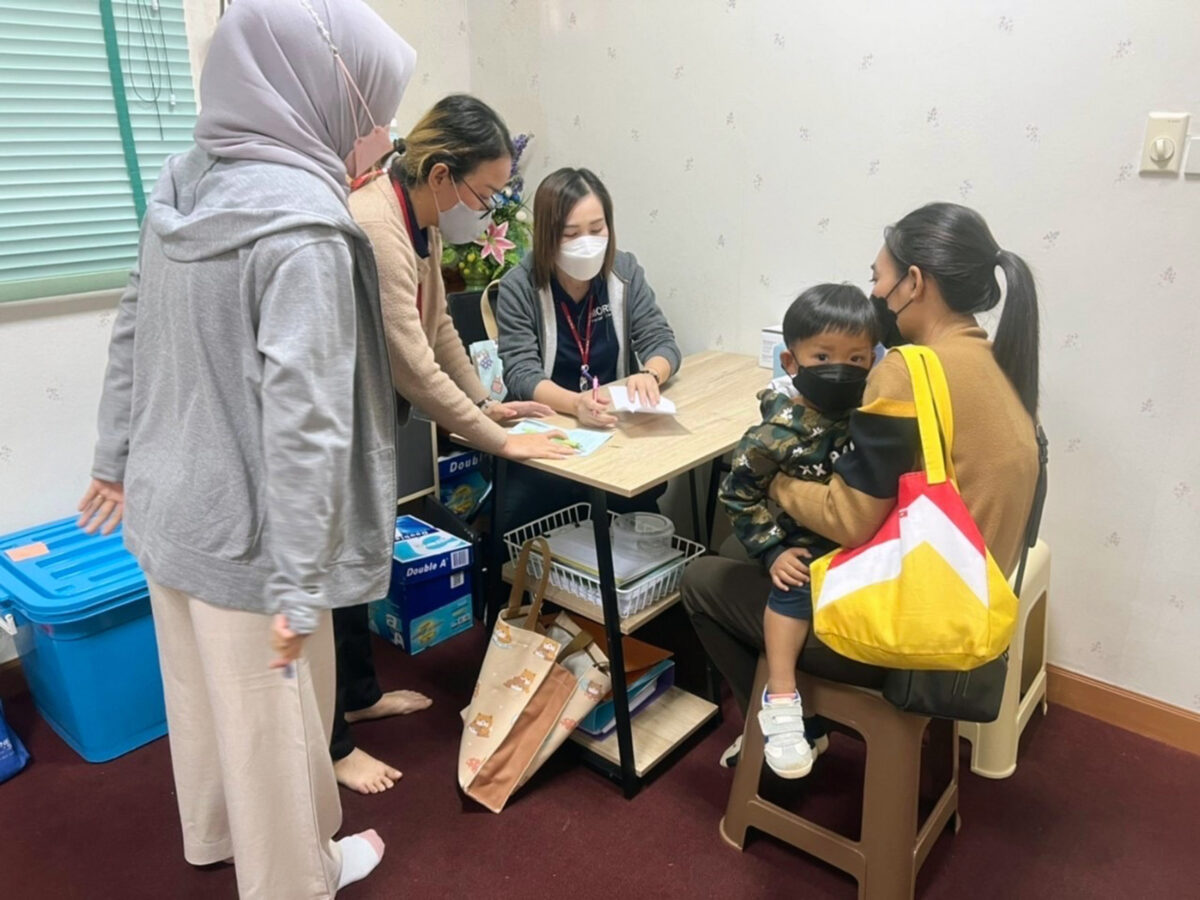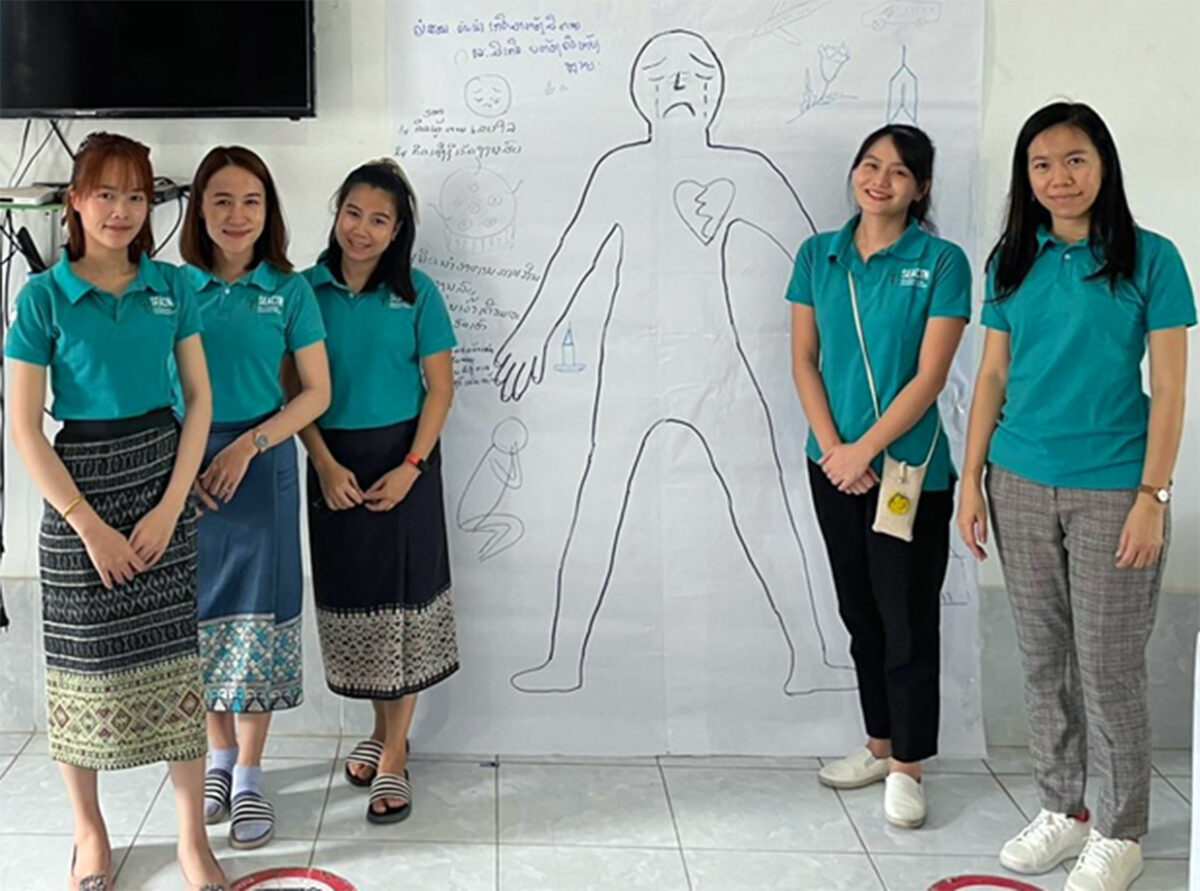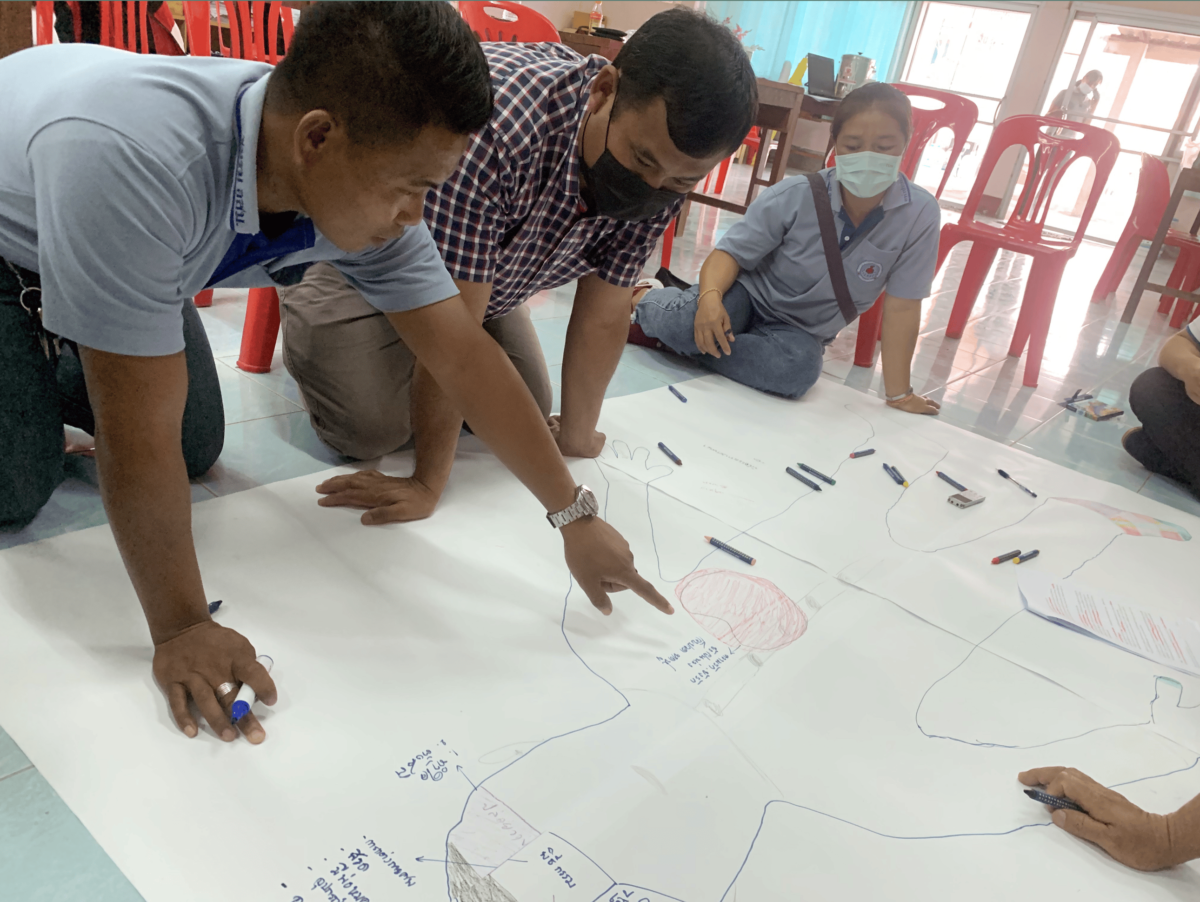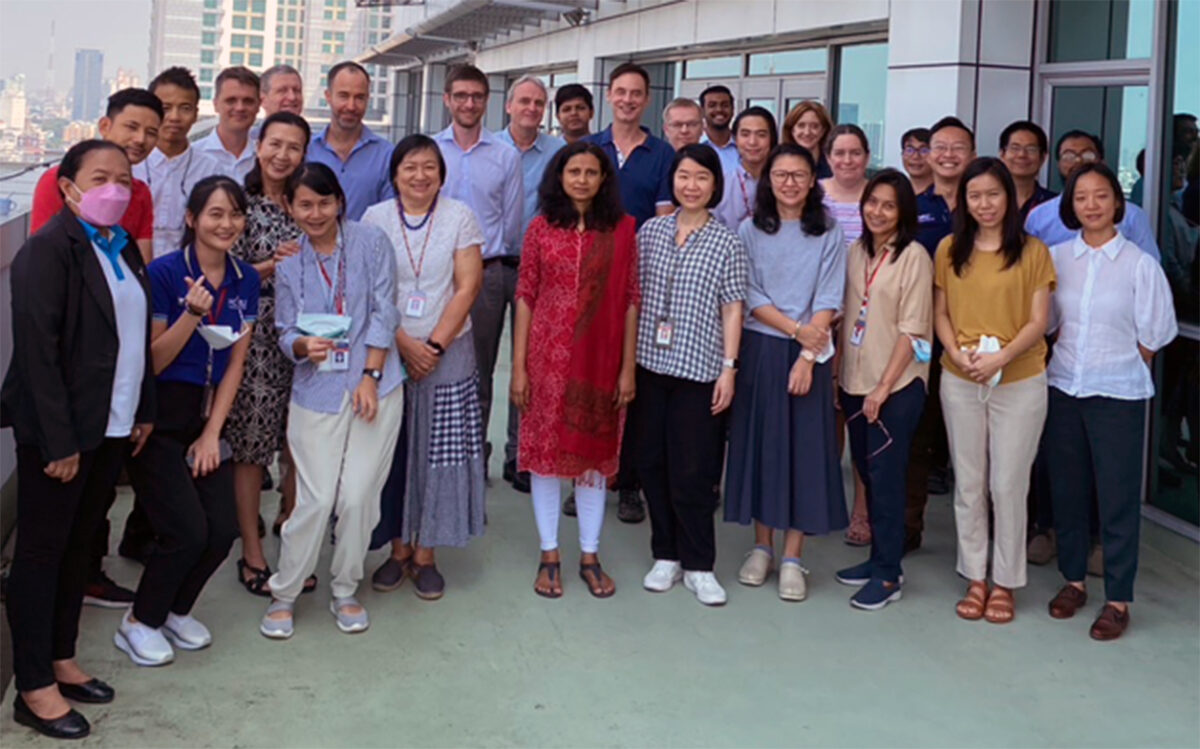Having overseen recruitment of an astounding 25,000 patients by our partners from Savannakhet Health Centres in Atsaphangthong, Phalanxay and Phin District Health Centres as part of Work Package A of the multi-country SEACTN project (improving management of febrile illnesses in rural areas), as well as conducting more than 1400 verbal autopsies, the LOMWRU Work Package A team packed up to return to Vientiane last week (week of 3 July). We visited the district hospitals with Provincial Health Office Director Dr Tiengkham Pongvongsa (bottom photo, left) who has overseen numerous research projects in Savannakhet Province over the years. Dr Koukeo Phommasone, who has coordinated all the work packages in Laos since the beginning of the project, gave very preliminary results to the heads of the District Health Offices, who eagerly await full results from MORU in Bangkok at a later date. We also caught up with Dr Chanthala Phamisith, Director of Savannakhet Provincial Hospital where Work Package B of SEACTN is being conducted with more than 1000 patients included so far (WP-B team is Dr Xaykhamphet, Dr Khanxayaphone, Dr Sengdavanh and Mr Bank).
The LOMWRU WP-A team are shown above on a previous visit, from left: Mr Souksavanh Simanivong (logistician), Mr Somdy Xayalath (VA project), Dr Nongneth Khambounheuan (Director of Atsaphangthong District Hospital), Dr Souphap Inxyxiengma (Head of Atsaphangthong District Health Office), Dr Xaipasong Xaiyaphet (site coordinator), Dr Khambang Seevanhthong, and Dr Aitlada Soulivong.
– Text courtesy of Liz Ashley, with thanks to Dr Xaipasong Xaiyaphet for photos.
